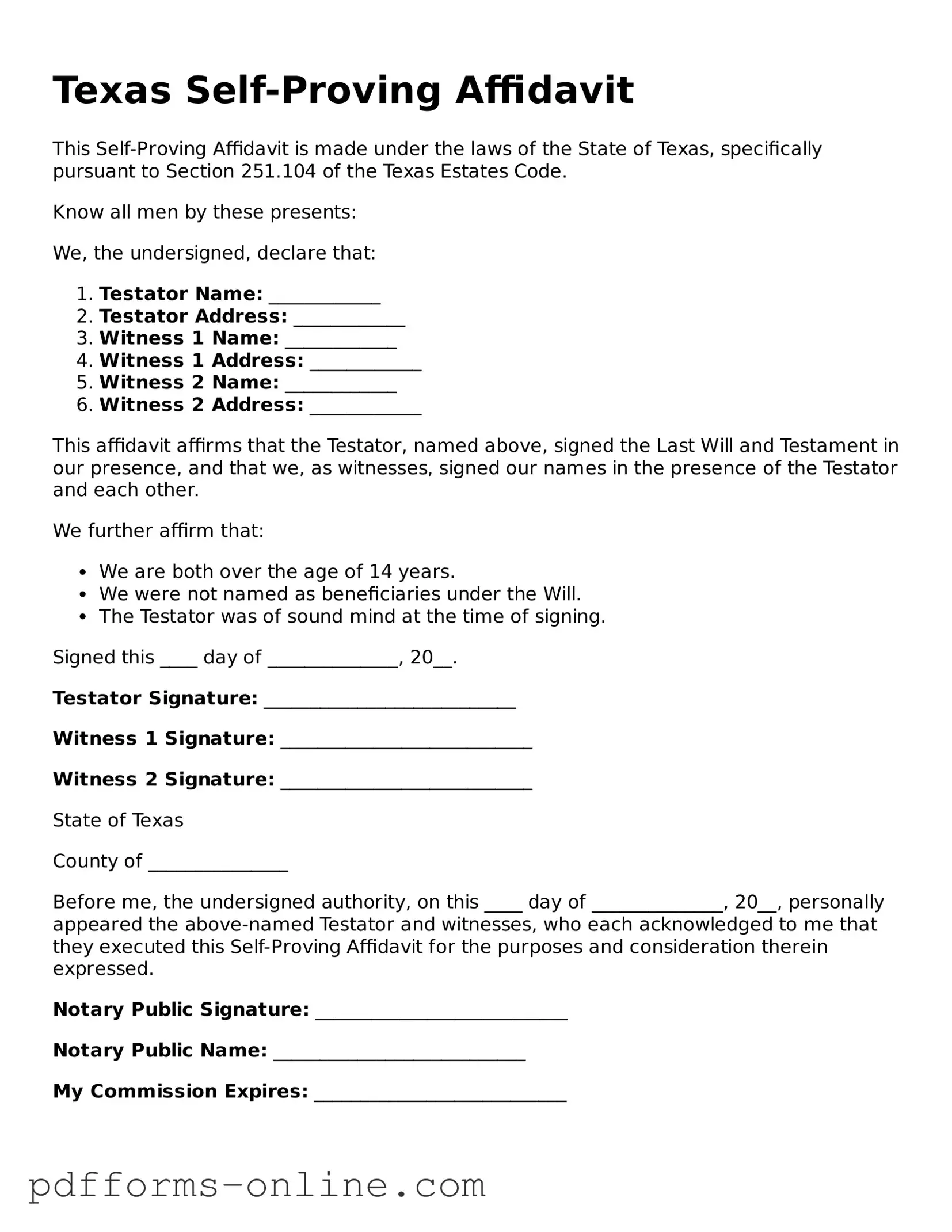Texas Self-Proving Affidavit
This Self-Proving Affidavit is made under the laws of the State of Texas, specifically pursuant to Section 251.104 of the Texas Estates Code.
Know all men by these presents:
We, the undersigned, declare that:
- Testator Name: ____________
- Testator Address: ____________
- Witness 1 Name: ____________
- Witness 1 Address: ____________
- Witness 2 Name: ____________
- Witness 2 Address: ____________
This affidavit affirms that the Testator, named above, signed the Last Will and Testament in our presence, and that we, as witnesses, signed our names in the presence of the Testator and each other.
We further affirm that:
- We are both over the age of 14 years.
- We were not named as beneficiaries under the Will.
- The Testator was of sound mind at the time of signing.
Signed this ____ day of ______________, 20__.
Testator Signature: ___________________________
Witness 1 Signature: ___________________________
Witness 2 Signature: ___________________________
State of Texas
County of _______________
Before me, the undersigned authority, on this ____ day of ______________, 20__, personally appeared the above-named Testator and witnesses, who each acknowledged to me that they executed this Self-Proving Affidavit for the purposes and consideration therein expressed.
Notary Public Signature: ___________________________
Notary Public Name: ___________________________
My Commission Expires: ___________________________
